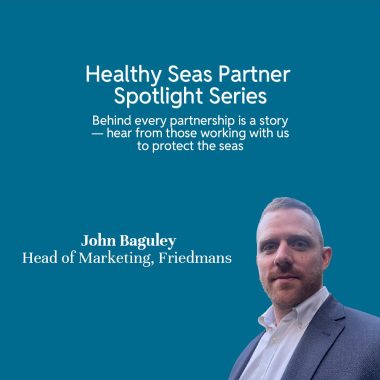Exploring the Power of Outdoor Education:
A Conversation with Aristea Kyriakou from the European Outdoor Education Hub
In our latest episode of the Healthy Seas Podcast, we explored an innovative approach to education that’s not just about learning—it’s about living and interacting with the world around us. Our guest, Dr. Aristea Kyriakou, founder of the European Outdoor Education Hub, shared fascinating insights on how outdoor education can transform not only how students learn but also how they connect with their environment.
Outdoor education is more than just taking lessons outside. It’s a comprehensive methodology and philosophy that places students in natural settings, engaging them directly with their environment. Unlike traditional classroom-based instruction, which often relies on theoretical learning, outdoor education emphasizes experiential learning. This approach allows students to interact with their surroundings, engage multiple senses, and gain practical understanding through hands-on activities.
Aristea’s work with Healthy Seas in our Operation Ghost Farms exemplifies this methodology. By combining cleanups of abandoned fish farms with educational activities for kids, the program not only addresses immediate environmental issues but also fosters a deep, personal connection between students and their natural surroundings.
Why Outdoor Education Matters for Marine Conservation
The connection between outdoor education and marine conservation might not be immediately obvious, but it’s profoundly significant. When students are immersed in their local environments—like the seashores and ecosystems near their schools—they begin to see these places as their own. This personal connection makes them more invested in protecting and preserving these environments.
For instance, in the program with Healthy Seas, students aged 10 to 12 participated in outdoor activities that integrated their usual lessons with real-world applications. They explored the impact of microplastics on their local beaches and engaged in hands-on experiments to understand environmental issues better. This approach not only made learning more engaging but also empowered students to share their newfound knowledge with their families and communities, becoming active agents of change.
The Benefits of Experiential Learning
Outdoor education offers several benefits over traditional classroom settings:
- Enhanced Engagement: Students are more engaged when learning involves direct interaction with their environment. The experiential nature of outdoor education often results in heightened enthusiasm and deeper understanding.
- Sensory Experience: Learning outside engages multiple senses—sight, sound, touch, and smell—making the experience more memorable and impactful.
- Empowerment: By participating in hands-on activities and real-world problem-solving, students feel a sense of empowerment. They see how their actions can make a difference, fostering a proactive attitude toward environmental issues.
- Holistic Learning: Outdoor education supports not only academic learning but also social and emotional development. It enhances teamwork, critical thinking, and a sense of responsibility towards the community and the environment.
Challenges and Opportunities
Despite its benefits, outdoor education faces challenges such as limited resources and rigid curricula. However, organizations like the European Outdoor Education Hub are working to overcome these obstacles by providing resources, training, and support to educators. They emphasize that incorporating outdoor elements into education doesn’t require a complete overhaul of existing curricula but rather a creative integration of outdoor experiences.
Incorporating Outdoor Education into Your Practice
For those interested in integrating outdoor education into their work, start by exploring the natural spaces around you. Even urban schools can benefit from redesigning their outdoor environments to include more natural elements. Begin with small steps, such as outdoor lessons or garden projects, and gradually build on these experiences.
Aristea Kiriakou’s work illustrates the powerful impact of outdoor education. By making nature a central part of the learning experience, we can inspire a new generation of environmentally conscious individuals who are equipped to tackle the challenges of climate change and marine conservation.
Listen to the Full Episode
To dive deeper into this topic and hear more about Aristea’s inspiring work with Healthy Seas, tune into our latest podcast episode. Discover how outdoor education can revolutionize the way we teach and engage with our natural world. Listen to the episode here.















